Iran Summons German Envoy Over UN Rights Resolution
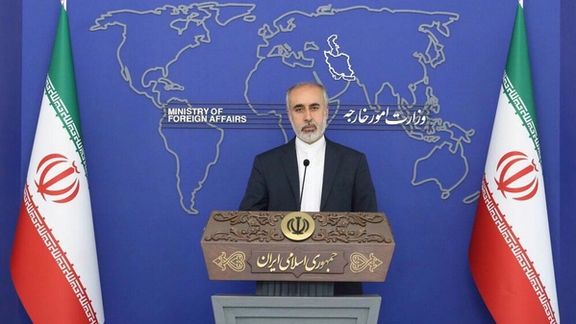
Iran’s foreign ministry has summoned Germany’s ambassador in Tehran for the third time in a month to protest “interventionist” remarks by German officials.

Iran’s foreign ministry has summoned Germany’s ambassador in Tehran for the third time in a month to protest “interventionist” remarks by German officials.
Tehran says the German envoy Hans-Udo Muzel was also summoned for Berlin’s key role in holding a UN Human Rights Council special session on Iran last week.
Iran’s foreign ministry spokesman Naser Kanaani said in this meeting, Tehran “strongly protested against the interventionist and baseless statements of the German authorities.”
“The German ambassador was also told that the recent resolution of the special meeting of the UN Human Rights Council is a wrong step based on a completely political and instrumental use of human rights and is fundamentally rejected. The Islamic Republic of Iran will not cooperate with any mechanism defined by it,” added Iran’s foreign ministry.
The ministry also noted that it has warned the German ambassador that Berlin and other European governments who support “the unilateral sanctions of the United States” are not “qualified to raise human rights claims”.
The UN Human Rights Council voted Thursday to launch an independent investigation into Iran's deadly repression of protests, that has killed more than 400 civilians.
The 35th special session of the Human Rights Council was held following an official request submitted on November 11 by Germany and Iceland, as well as the support by over 40 other states.
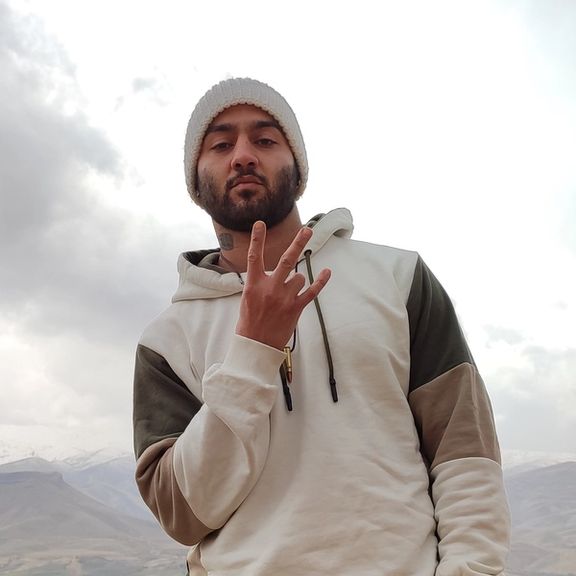
Chief Justice of Iran’s Esfahan province says dissident popular rap singer Toomaj Salehi has been accused of “corruption on earth” which may carry the death penalty for him.
Asadollah Jafari on Sunday said Toomaj Salehi faces other charges, including “propaganda activity against the establishment, forming an illegal group with the intention of disrupting the security of the country, cooperating with hostile governments, and spreading lies and inciting others to commit violence.”
However, Jafari said no court has been held for the rap singer yet. Toomaj Salehi was detained in late October after criticizing the Islamic Republic and expressing solidarity with the protest movement after the death of Mahsa Amini in police custody.
This comes as sixteen UN-appointed independent human rights experts urged the Iranian government to stop using the death penalty as a tool to punish protesters.
A US-based human rights group said on Saturday that Toomaj Salehi's trial had begun “without an attorney of his choice,” and his family said his “life is in danger.”
Earlier this month, 126 musicians, poets, artists, and activists called for his release.
Salehi’s arrest came shortly after his interview with the Canadian Broadcasting Corporation, saying that “You are dealing with a mafia that is ready to kill the entire nation... in order to keep its power, money and weapons.”
In his politically charged songs such as “Buy a Rat Hole”(2021), Toomaj, a 32-year-old metalworker in Esfahan, spoke out against repression, injustice, poverty, and authorities’ own corruption and impunity from prosecution.
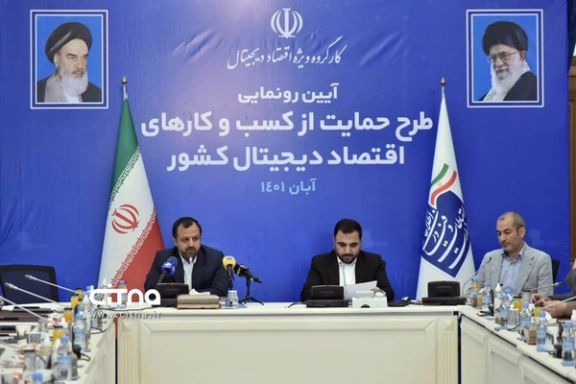
Amid internet shutdown to prevent spread of information about the ongoing protests, the Islamic Republic plans to provide high-speed internet to "accredited” digital businesses.
The frequent government shutdown of internet access has caused serious disruption for individuals and small businesses based on digital sales and marketing.
The new measure, dubbed “Regulations to support freelancers active in the country's digital economy," was ratified by the government’s digital economy taskforce on Saturday in 10 articles, which probably will lead to strict monitoring of online activities and ensuring that regime supporters have internet access.
The use of the term ‘freelancer’ might be misleading. The definition in the regulation points to individuals or companies that apply as active in digital economy and approved by the government.
Headed by Communications and Information Technology Minister Issa Zarepour, the taskforce was established last year to coordinate the government’s supervision on online activities among four ministries.
It defines a freelancer and its range of services, includes instruction on how to create a database of digital ‘freelancers’, sets criteria on their accreditation and how government institutions should interact with them, as well as some insurance and financial matters.
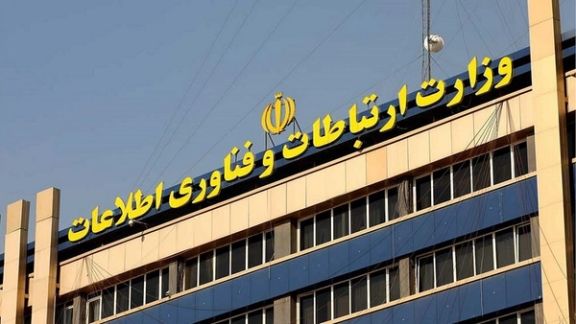
According to the new regulations, the computer trade union has been tasked to set up a database of ‘freelancers’ and their activities within three months.
In its article 8, the Ministry of Information and Communications Technology has been tasked with providing the necessary infrastructure for “high-speed and stable Internet with appropriate level of access for accredited people," without clarifying on the “appropriate access” or who are the “accredited people.”
In another article, the government claims that in order to supervise the “fairness and transparency” of the contracts between freelancers and employers, instructions have been issued for monitoring software platforms. According to the document, the regulations for accreditation into the database will be announced by the ministry upon collaboration among Ministry of Information and Communications Technology, the country's computer trade union organization; Ministry of Cooperatives, Labour, and Social Welfare; Ministry of Culture and Islamic Guidance; the presidential office of Science and Technology and Knowledge-Based Economy; and last but definitely not least the Intelligence Ministry.
Many Islamic Republic officials, such as member of the parliament Javad Hassanikia and former Information Minister Mohammad-Javad Azari Jahromi, have talked about providing internet access to university professors or journalists. The move can be a measure to justify replacing the country’s internet with an intranet for the general population who will be disconnected from the world wide web and controlled by the regime’s limited domestic access. Azari-Jahromi was one of the main supporters of the idea of stratifying Internet access inside the country. In an address to the parliament, he defended the idea saying it is not possible to provide the same type of internet to all jobs and ages in the country.
Like almost all measures by the Islamic Republic that sound innocent but pursue ulterior motives, the new move is titled “regulations to support freelancers” but is meant to suppress any critical voice and cajole those who want normal access to the internet to be on the regime’s side. It means that if you want to have access to the internet, the government should be able to monitor your work and make sure you do not engage in any activity or cooperate with anyone the regime deems hostile.
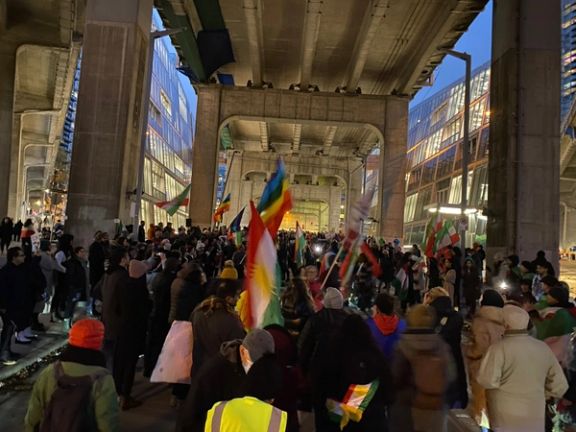
CBC Canada has reported that an increasing number of Iranians living in Canada have expressed their concern that they are being followed and threatened by regime agents.
Based on the report, elements of the Islamic Republic living in Canada have threatened Iranians, monitored them, and even chased them to their homes after demonstrations in Canadian cities.
The activists told CBC they have had no help from Canadian police or government officials and do not feel like the threat is being taken seriously.
The report also added that the agents of the Islamic Republic have threatened Iranian Canadians through calls and text messages to cell phone numbers that were supposed to be private.
The messages warned them to stop posting on social media and speaking out about Iran.
Canadian Security Intelligence Service (CSIS) had earlier acknowledged that they are monitoring the situation, announcing for the first-time last Friday they are investigating “several threats to life emanating from the Islamic Republic of Iran.”
CBC said last Friday that Canadian Security Intelligence Service was aware that some state agents of the Islamic Republic are “monitoring and intimidating” people inside Canada to silence those who speak against the regime.
Since popular protests started against Iran’s clerical regime, activists and Iranians living in Canada have held large gatherings and demonstrations in Canadian cities in solidarity with the protesters inside the country.
Meanwhile, many activists are preparing various lists of people affiliated with the Islamic Republic and living in Canada to present to the authorities.

As Iran last week began enriching uranium to 60 percent at a second site, its chief nuclear negotiator Ali Bagheri-Kani was in India talking economics.
High on the agenda for the Iranian deputy foreign minister was energy, which increasingly figures in diplomatic or ‘political’ talk as the December 5 deadline looms for an international price cap on Russian oil. Proposed by the United States through the G7, this will bar European and British services, including insurance and tankers, to any worldwide purchaser of Moscow’s crude paying above the cap.
Indian politicians are aware their country has increased oil imports from Russia this year to around 750,000 barrels a day (bpd). There is little prospect of New Delhi resuming imports of Iranian oil, which it stopped in 2019 in fear of US ‘maximum pressure’ sanctions after Washington in 2018 left the Iran nuclear deal, the JCPOA (Joint Comprehensive Plan of Action). In 2017-18, India had taken 10 percent of its oil imports from Iran.
India, which abstained on the November 17 International Atomic Energy Agency (IAEA) vote censuring Iran over its nuclear program, is among countries in the ‘global south’ uneasy over US and EU measures against Russia disrupting energy and food supplies. As Europe cuts back links with Moscow, Pakistan, another abstainer at the IAEA, is in talks with Moscow over buying oil with delayed payments.
True, Indian officials know the price cap is unlikely to choke their supply. Discussions have centered on setting it at $65-70 a barrel. The cap is likely to be above the price Russia now sells at, with benchmark Urals at $52 a barrel Thursday, Argus Media reported. The cap would therefore stem the flow only if oil prices rally.
Even so, the Russian economy is reeling from the consequences of the Ukraine war. By December 5 the EU itself will stop taking seaborne Russian oil. Russia’s exports to Europe – seaborne and pipeline – have already fallen from 3.5 million to 1.5 million bpd, and its GDP, says the International Monetary Fund, will slump 3.5 percent this year. Official figures had $14.7 billion withdrawn from Russia’s banking system in October as anxiety mounted.

Moscow’s efforts to compensate for lost oil exports in Europe by increasing sales to Beijing have been hampered by the sluggish state of a Chinese economy under Covid restrictions. Chinese buyers have also gained a discount put by Rapidan Energy Group at around $15 a barrel.
This has hit Iran’s own sales to China. While Iranian exports have become increasingly opaque in order to hide them from US eyes, Tehran’s oil sales of 500,000-1 million barrels a day (bpd), going almost entirely to China, have been undercut by Russia.
Given the growing lack of transparency, Iran’s ministers have made vague but generally optimistic claims, often banding together crude, gas condensate, petrochemicals and petrochemical products.
Middlemen, barter, uncertain prospects
Iran’s earnings figures are further blurred by payments to middle-men and barter, as was recently highlighted by Fararu. The privately-owned website judged it “unlikely that the Iranian government has succeeded in increasing its export volume,” and chided oil minister Jawad Owji for apparently suggesting exports were somehow higher than the 2.8 million bpd before US ‘maximum pressure.’
Fararu noted that “several experts” had argued the Iranian budget for the year beginning March 2023 should assume an oil price of $40-$50 per barrel on sales of 600,000 bpd. This compares to the $70 figure underlying the 2022-3 budget, and marks a further sign of Iranian media and analysts assuming that talks to revive the JCPOA are going nowhere and that US sanctions will therefore remain at least for the medium term.
Iranian President Ebrahim Raisi has trumpeted success in surviving maximum pressure in the face of depleted foreign revenue. The economy’s halting recovery from two years of recession to low economic growth 2020-22 has been based on domestic industry benefiting from the lower rial and reduced foreign competition in the home market.
But anxieties in Iran reflect not only diminishing JCPOA prospects and the internal instability sharpened with current protests. Iran still needs foreign earnings to pay for imports and rally the rial. The shift in geopolitics and energy supplies with the Ukraine crisis, as well as a rising dollar, aligns Iran not so much with energy exporters, as with so much of Africa and poorer Middle Eastern countries facing rising inflation and uncertainty.
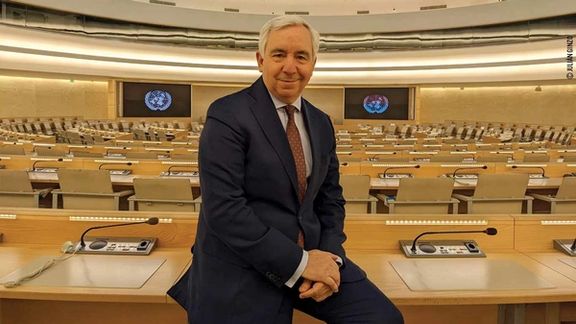
The UN Human Rights Council president says he believes that the newly established fact-finding mission on Iran can make a difference.
In an interview with CNN International, Federico Villegas of Argentina said Friday that the newly created fact-finding mission to investigate alleged human rights violations in Iran “can make a difference,” and expressed hope that Iran will cooperate.
During the special session on Iran Thursday, the President of the Human Rights Council had noted that it is a multilateral and democratic body where differences of opinion are legitimate, raising hope that the Islamic Republic would cooperate to carry out the mission.
“I think that at one moment or another they will realize that the Iranians across the world are asking for change and their demands for change are directly linked to human rights because they would like to see a different situation in their country in relation to human rights,” Villegas told CNN’s anchor Becky Anderson.
He went on to say that the UN Human Rights Council for the first time established a special team to run an independent investigation into the violations that are being committed on a daily basis in Iran.
The UN Human Rights Council voted Thursday to launch an independent investigation into Iran's deadly repression of protests, that has killed over 450 civilians.
The motion passed with 25 votes in favor, six opposed and 16 countries abstaining amid cheers of activists amid an intensifying crackdown in Kurdish areas of western Iran over recent days.